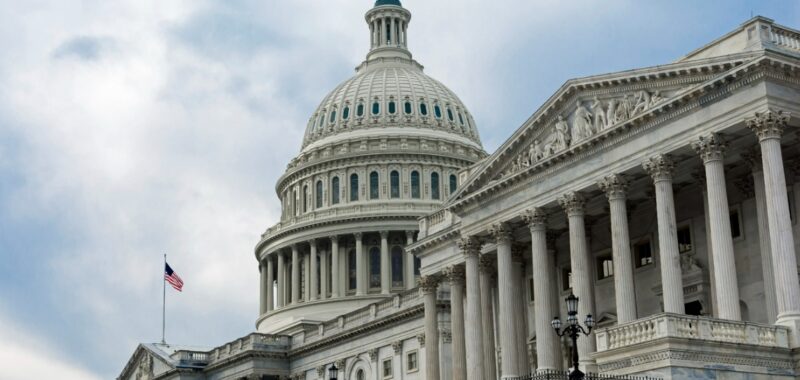The National Association of Home Builders (NAHB) called on Congress this past Wednesday, July 24, to address two key policies that will notably escalate costs for home buyers and renters: the federal push to mandate costly and restrictive national energy codes and the Biden administration’s recent proposal to cap rent increases at 5%.
Testifying during a House Financial Services subcommittee hearing on government regulations that impact housing, NAHB Chairman Carl Harris told lawmakers that “increasing the inventory of new single-family and multifamily housing is key to improving housing affordability and that eliminating excessive regulations is essential to help builders to boost the nation’s housing supply.”
Reducing excessive regulations is a key component of NAHB’s 10-point plan to tackle the nation’s housing affordability crisis, the organization stated. The plan outlines sensible policy solutions at all levels of government and includes other key provisions such as adopting reasonable and cost-effective building codes, fixing building material supply chains and overturning inefficient local zoning rules.
NAHB states that its research found that regulatory costs, which include complying with building codes, make up nearly 25% of the cost of a single-family home and more than 40% of the cost of a typical apartment development. Increased regulations, especially energy building code requirements such as the recent decision by the U.S. Department of Housing and Urban Development (HUD) and the U.S. Department of Agriculture that requires them to insure mortgages for new single-family homes only if they are built to the 2021 International Energy Conservation Code (IECC) and HUD-financed multifamily housing be built to 2021 IECC or ASHRAE 90.1-2019, are making it much harder for home builders and multifamily developers to build housing that is attainable and affordable for American families.
According to Home Innovation Research Labs, compliance with the 2021 IECC can add $22,572 to the price of a new home, but in practice, home builders have estimated increased costs of up to $31,000. Furthermore, it can take as long as 90 years for home owners to see a payback on this investment.
Harris noted how the 2021 IECC has already had damaging effects on the housing market near his home community. Kansas City, Mo., adopted the 2021 IECC on July 1, 2023, in hopes of receiving Inflation Reduction Act grant funds.
“As a result of adopting these stringent energy codes, Kansas City has seen a 22% decrease in single-family construction permits in January and February of 2024 compared to last year while the Kansas City metro area, excluding Kansas City, has seen a 117% rise in permits,” said Harris. “This has regrettably paralyzed the housing market in Kansas City at a time when area housing markets are booming. The resulting decline in home building has had a domino effect on the rest of the economy, with fewer jobs, housing options, higher housing costs and a lower tax base.”
In addition to negatively impacting potential home buyers, NAHB stated that these increased requirements and higher costs stemming from the stringent 2021 IECC can result in decreased production and longer permitting and construction times, further exacerbating housing affordability challenges.
NAHB stated it is urging lawmakers to cosponsor a Congressional Review Act resolution of disapproval introduced by Rep. Warren Davidson (R-Ohio) to allow Congress to overturn this harmful energy codes rule.
Rent control
Harris also warned lawmakers that Biden’s plan to require housing providers with 50+ existing units to choose to either cap annual rent increases at 5% or lose accelerated depreciation benefits will worsen the housing affordability crisis by discouraging developers from building new rental housing units at a time when the nation is experiencing a shortfall of 1.5 million housing units.
“Rent control is the most harmful and counterproductive regulation that multifamily housing providers face,” said Harris. “Rent control jeopardizes the long-term financial solvency of the property, hamstrings the ability of apartment owners and managers to respond to sudden operating cost spikes and creates a disincentive for new apartment construction.”
NAHB stated that rent caps could also hurt existing tenants because owners and developers would be unable to cover rising costs if rents are fixed. The organization said that having apartment owners to choose between 5% caps on annual rent increases for the next couple of years or losing accelerated depreciation tax benefits will discourage developers from building new rental housing, causing apartment supply to fall further below the demand, which will ultimately lead to higher rents.
Harris said if the White House is serious about lowering costs for renters, the administration should rescind its rent cap proposal and focus on increasing the rental housing supply.
“The Biden administration should be calling on the Senate to approve the Tax Relief for American Workers Act, legislation that sailed through the House earlier this year and includes key provisions to expand the Low-Income Housing Tax Credit, which is the best tool to finance the production of affordable housing,” said Harris. “The administration should also be urging Congress to support bipartisan proposals to create a new tax credit to produce affordable workforce rental housing geared toward middle-income households, such as teachers, health care professionals and law enforcement.”
For more information, visit https://www.nahb.org/.

